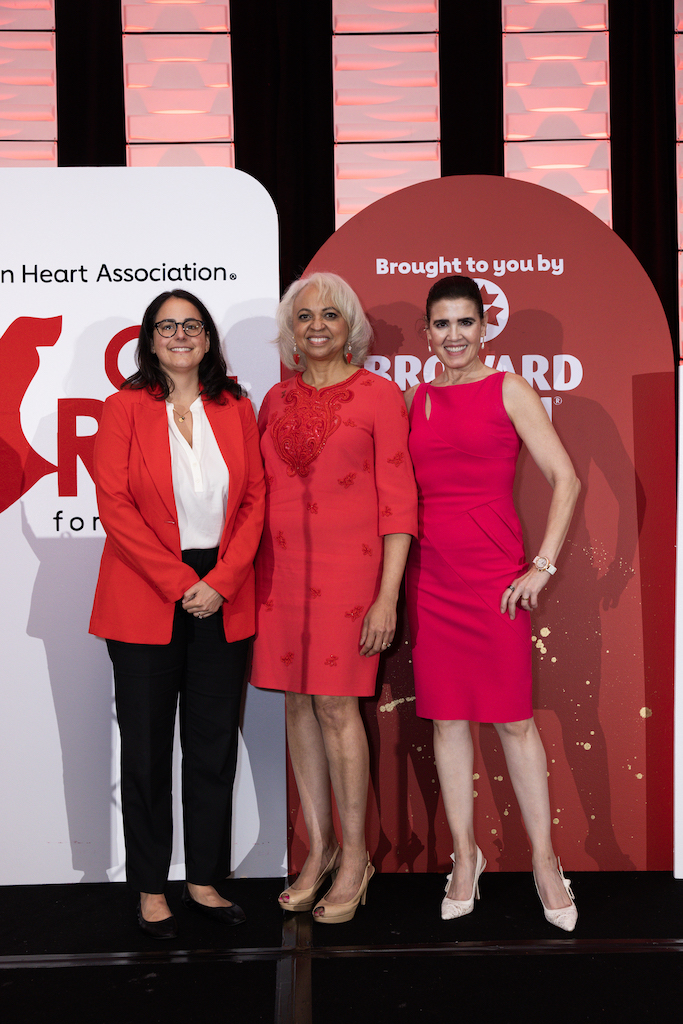Good Hearts Empower Women: American Heart Association’s Annual Go Red For Women Luncheon

Photo Credit: Courtesy of American Heart Association
In a vibrant display of unity and red, over 200 guests arrived at the American Heart Association’s annual Go Red for Women Luncheon event in South Florida. Embellished in red from head to toe, supporters congregated on the memorable Thursday, May 25th to raise awareness and help fund the fight against the tragedies of heart disease and stroke in women.
“The Go Red for Women Luncheon is not just about wearing red. This is about all of us standing together and doing something to fight our No. 1 killer, which claims the lives of 1 in every 3 women. Losing even one woman to this largely preventable and treatable disease is too many,” said Marisol Garcia, Executive Director of the American Heart Association’s Greater Miami and Fort Lauderdale market.

Photo Credit: Courtesy of American Heart Association
The American Heart Association has devoted years to women’s heart health since 2004 and has been taking powerful steps to change the stigma around it, expanding upon the existing 2 million women already informed. Although the association is continuing its efforts with the Go Red for Women movement, health disparities still exist among and between women.

Photo Credit: Courtesy of American Heart Association
With this year’s theme of Be the Beat, the luncheon focused on conquering the inequalities that women face. One of the main discrepancies in women’s heart health is the difference in bystander CPR rates. Women are much less likely to receive bystander CPR due to the fear of wrongful accusations of inappropriate touching, sexual assault, or injuring the person and the myth that women are less likely to endure these heart problems.

Photo Credit: Courtesy of American Heart Association
Because one of the main issues stems from low bystander CPR rates, raising awareness, improving training, and advocacy are all goals for the Go Red for Women campaign. To avoid future discrepancies when it comes to women’s heart health, It is important to address gender-related barriers and use the representation of women in training materials and informational videos. To improve cardiac arrest responses, it is important to educate and note that all states have Good Samaritan laws that protect anyone who gives first aid and CPR. By equipping people with Hands-Only CPR training, they learn how simple the technique is and gain confidence that will help them act quickly in an emergency.

Photo Credit: Courtesy of American Heart Association












